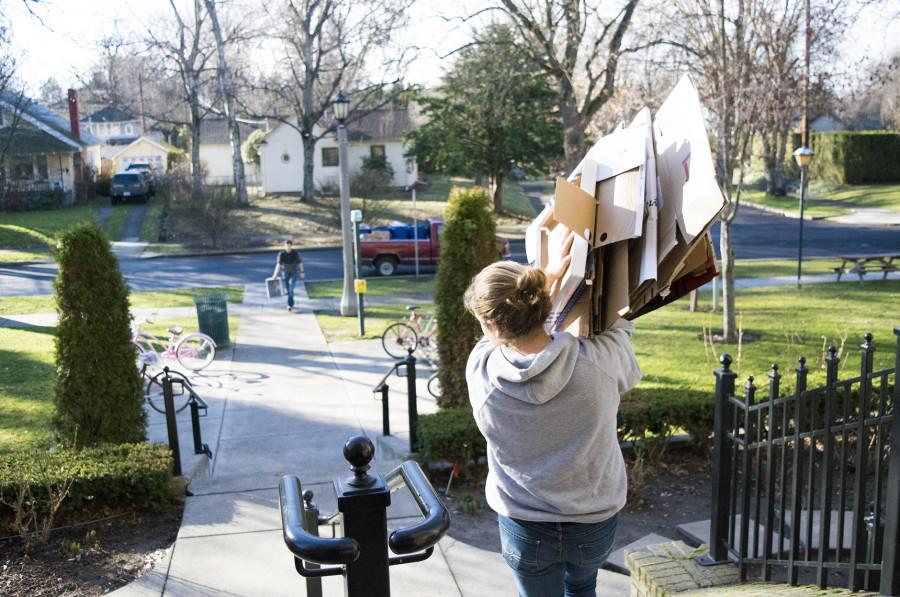Whether it’s a ride to the airport or a weekend Portland getaway, accessibility to a car would give spice to the small-town Walla Walla life.
Even though Whitman is a reputedly isolated college, it remains behind the increasingly popular trend of campus Zipcars. However, after three years of discussion, Zipcar may be making an appearance on Whitman campus in the next couple of years.
Zipcar is a car service that would allow students, community members and possibly members from the surrounding Walla Walla colleges to rent and use a car on an hourly or daily basis. The driver of a Zipcar specifies the amount of time a car is needed, and insurance and gas money are included in the reservation charge. Currently 11 out of Whitman’s 12 comparison schools use some sort of car rental service.
“The more we move towards our comparison schools, the less unique we become as an institution, and that can be applied to Zipcars,” said first-year ASWC Senator Jack Percival. “Before we pursue it more, we need to evaluate the value we place on our community. We need to ask ourselves, do we want [Zipcars] or do we want to maintain that solidarity as a campus?”
One of these comparable schools is Lewis & Clark College, which offers car rentals for five dollars an hour. These “U-Cars” are accessible and used by students to go downtown and for transportation to the airport.
“I really like U-Car; it’s easy, affordable and super convenient,” said first-year Lewis & Clark student Elizabeth Valadez. “It’s nice to be able to rent a car and not have to be 25 years old.”
Senior ASWC Senator Caroline Carr has been an active member of attempting to implement Zipcars on campus. After emailing Zipcar, she reached a dead end when they asked to be put in contact with Whitman’s sustainability coordinator or business office. Though there was no sustainability coordinator at the time, as of Feb. 21 the sustainability coordinator staff position that ASWC has pushed for will be filled beginning in the Fall of 2013.
“I’ve done a lot of research on it, but now I need the administration to pick up the slack,” said Carr. “With the sustainability coordinator coming in, it should be pretty easy for people to do it next year.”
The sustainability coordinator would be a staff position based on implementing long-standing green initiatives for Whitman. Attaining this staff member creates a link between administration and students and will be helpful in creating contacts with organizations such as Zipcar.
“Zipcar would fall in line with a greener goal for Whitman because it would reduce the amount of carbon emissions emitted by people going out on the weekends,” said Percival.
Similarly, Zipcar services would reduce the amount of cars that people bring to campus, which would enhance the goal of a greener campus.
“I think it could be a great resource to Whitman students in that they wouldn’t feel like they would need to bring their cars from across the state or from California or Washington, because they would have access to cars here,” said senior Sustainability Intern Zoey Rogers in an email. “This would hopefully encourage less driving overall, and people would be more conscious of when they chose to drive a car because they would have to rent it through Zipcar.”
At the present time, the main means of transportation for students is through sharing of friends’ cars. Cars are also available through the OP, but only for students who are certified and are typically for outdoor pursuits. This leaves the remaining population with limited weekend getaway options.
“Zipcar would fall under the umbrella of this urban adventure program that I have. I think it would be really cool to have more cultural community-based things,” said Carr. “We need more outlets for students who want to go to a city now and then.”
Carr’s idea of an urban adventure program involves a structure similar to that of the Outdoor Program, but with off-campus activities such as concerts at The Gorge and trips to art galleries or other museums. The accessibility of Zipcars would allow students to not only take short, errand-like trips, but also longer weekend getaways to Portland or Seattle. However, this would also lead to more transportation and perhaps result in a converse affect for Whitman’s goals of a greener campus.
“On the other hand, I think it could potentially encourage more people to drive who normally don’t,” said Rogers. “If there is easy access to cars, people who may normally walk or bike to the store would be more inclined to rent a Zipcar.”
The Zipcar could be a positive or negative change for students and Whitman’s green goals, and is a discussion that will continue to develop and produce results within the ensuing year. The next step in this process is receiving student opinion on this issue, and ASWC plans to reach out to students to find and represent the majority opinion.










